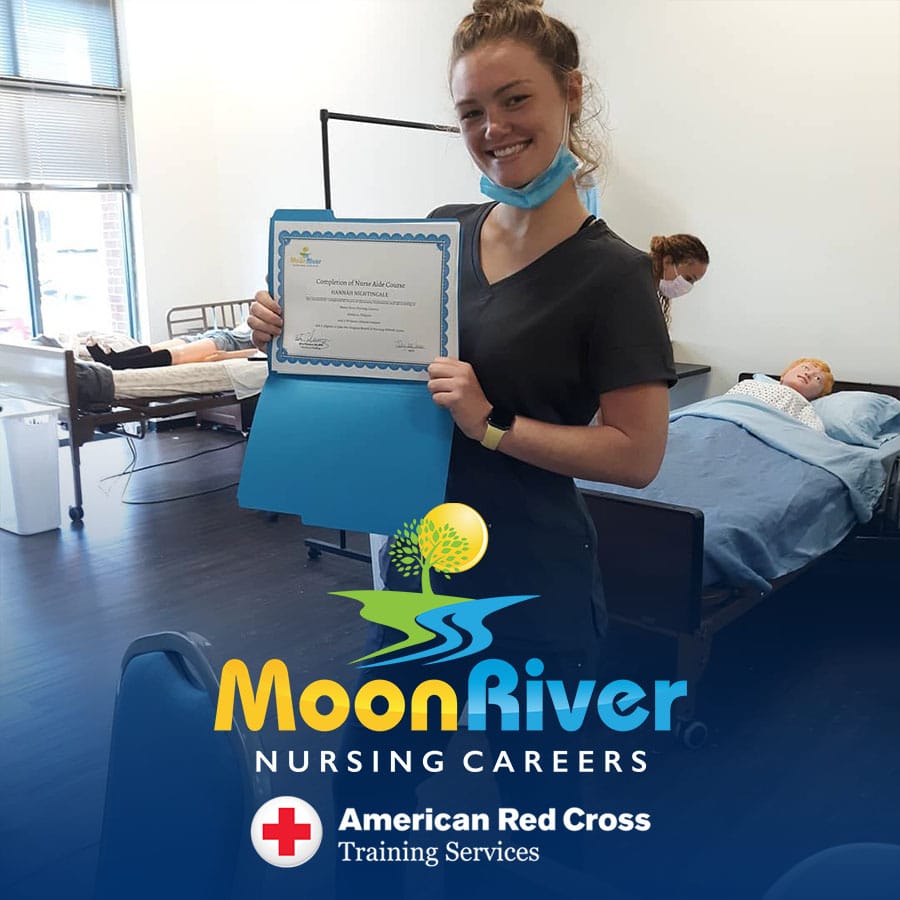Continuing education is essential for Certified Nursing Assistants (CNAs) who wish to expand their knowledge, keep up with healthcare developments, and advance their careers. Whether you’re looking to fulfill certification requirements or explore new specialties, CNA continuing education opportunities provide a path for growth. In this blog, we will cover education requirements, available classes, and how further learning can help you advance your nursing career.
CNA Continuing Education Requirements: What You Need to Know
In Virginia, CNAs must complete 12 hours of continuing education each year to maintain their certification. This education covers essential topics like infection control, patient rights, and effective communication, ensuring that CNAs stay current with best practices and state regulations. Meeting these requirements not only keeps you certified but also enhances your skills and opens up opportunities for career advancement.

Potential Career Paths for CNAs
Starting as a Certified Nursing Assistant (CNA) offers valuable experience and can lead to various career advancements. CNA skills form the foundation for many healthcare roles, making it a rewarding position with numerous opportunities.
- Licensed Practical Nurse (LPN): Requires 12-18 months of training for more advanced responsibilities.
- Registered Nurse (RN): Earn an associate or bachelor’s degree for independent patient care.
- Patient Care Technician (PCT): Take on more specialized tasks such as drawing blood.
- Qualified Medication Aide (QMA): Administer medications after additional training.
- Travel CNA: Take short-term, high-paying assignments in various locations.
How to Take CNA Continuing Education Classes
A variety of CNA continuing education classes are available to meet different interests and career goals. Classes are offered through community colleges, nursing schools such as Moon River, or online platforms, allowing people interested in becoming CNAs to learn at their own pace.
Online courses provide flexibility, making them ideal for CNAs balancing work with other responsibilities. When selecting courses, ensure they meet your state’s continuing education requirements to count toward certification renewal.
Continuing Education Options for CNAs:
- Online courses
- Skills labs
- In-person workshops
- Internships
- Specialty certifications (e.g., wound care, palliative care)
- Clinical experience hours
In Virginia, we offer courses to help CNAs advance their careers. You can explore our Nurse Aide Classes at Moon River Nursing Careers to find options that fit your schedule. For additional continuing education resources, visit the National Association of Health Care Assistants (https://www.nahcacna.org/) to explore approved courses and certifications.
Benefits of Continuing Education for CNAs
The benefits of continuing education for CNA professionals extend far beyond just meeting certification requirements. Here are a few key advantages:
- Higher Earning Potential: Specialized certifications and skills make you eligible for higher-paying positions. For example, expertise in areas like dementia care or IV therapy can lead to better job offers.
- Increased Career Flexibility: Continuing education allows you to explore various specialties, such as geriatrics, pediatrics, or home healthcare, and transition smoothly between different healthcare settings.
- Improved Job Security: Keeping your skills current makes you a valuable asset to employers, enhancing job security. Employers are more likely to retain CNAs who invest in professional development.
- Personal Satisfaction: Staying engaged with new learning opportunities keeps you passionate about your work and contributes to long-term job satisfaction.

Meeting CNA Continuing Education Requirements and Exploring New Paths
Meeting CNA continuing education requirements is just the beginning. Consider classes and certifications that align with your long-term career goals. Specialized certifications, such as in mental health or emergency care, not only make you a more competitive candidate but also prepare you for roles with greater responsibility and higher pay.
Planning your CNA career path involves setting both short-term and long-term goals. Short-term goals may include completing required education hours or obtaining a specialty certification. Long-term goals could involve transitioning to an LPN or RN role, requiring additional education like a diploma or an associate degree program.
Mapping Out Your CNA Career Path
Your CNA career path starts with identifying where you want to go. Whether you aim to specialize in a particular field or move into a leadership role, use CNA continuing education opportunities to build the skills and knowledge you need. Look for local courses, online options, and other programs that fit your schedule and professional objectives.
Take Charge of Your CNA Career Advancement
CNA continuing education is an excellent way to keep your skills current, meet certification requirements, and advance your career. By actively pursuing new learning opportunities, you can stay ahead in your field and be prepared for future challenges.
At Moon River Nursing Careers, we’re committed to supporting your journey. Whether fulfilling continuing education requirements or progressing on your career path, we offer the resources and opportunities you need to succeed. Start advancing your nursing career with confidence today!






